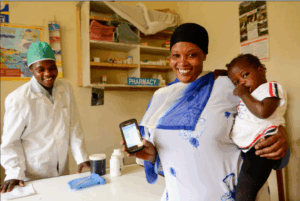In any healthcare system, public trust is the foundation of effective care delivery. Without it, even the most advanced hospitals or well-funded programs struggle to make an impact. In Kenya, historical concerns about affordability, access, quality, and medical ethics have contributed to skepticism toward both public and private healthcare institutions.

But today, a new generation of healthcare leaders is working to reshape public perception—not through promises, but through consistent service delivery, transparency, ethical practices, and community engagement. Among these leaders is Jayesh Saini, the founder of Lifecare Hospitals, Bliss Healthcare, and Dinlas Pharma, who has emerged as a key figure in building trust across Kenya’s healthcare landscape.
This article explores how healthcare leaders like Saini are restoring confidence in medical services by prioritizing integrity, patient-centered care, and inclusive outreach, creating systems that are both trusted and accessible.
1. The Trust Gap in Kenyan Healthcare
1.1 Historical Challenges
- Overcrowded public hospitals, limited resources, and long wait times have often led to patient dissatisfaction.
- Instances of overcharging, misdiagnoses, or lack of transparency in parts of the private sector have eroded public trust.
- In rural and low-income areas, many view medical care as unaffordable or inaccessible, reinforcing reliance on informal providers or self-medication.
1.2 Rebuilding Through Leadership
Restoring trust requires more than infrastructure—it demands leadership that prioritizes empathy, communication, and ethics. Hospital administrators, doctors, and healthcare entrepreneurs are increasingly embracing this challenge with measurable impact.
2. Jayesh Saini: A Trust-Driven Model of Healthcare Leadership
2.1 Patient-Centered Culture at Lifecare Hospitals
At Lifecare Hospitals, Jayesh Saini has fostered an environment where:
- Quality and compassion go hand-in-hand—with a focus on dignity, transparency, and personalized care.
- Clear communication and transparent billing practices reassure patients and their families.
- Patient feedback systems are integrated into hospital operations, helping improve service delivery and responsiveness.
With seven hospitals across Kenya, Lifecare has earned a reputation for reliable, specialist-driven care that is both accessible and patient-focused.
2.2 Ethical Practices and Community Outreach at Bliss Healthcare
Bliss Healthcare operates over 100 outpatient centers and emphasizes:
- Outreach programs and mobile clinics in underserved communities
- Health education campaigns focused on preventive care
- Partnerships with public institutions like the Teachers Service Commission (TSC) and National Police Service (NPS) to offer subsidized NHIF-covered care
These initiatives build community-level trust by showing that private healthcare can be a public good.
2.3 Pharmaceutical Integrity at Dinlas Pharma
With Dinlas Pharma, Saini ensures:
- Affordable, high-quality, locally produced medicines
- Strict compliance with pharmaceutical manufacturing regulations
- Transparent distribution to all 47 counties in Kenya
This commitment to drug accessibility and ethical pricing fosters trust in both the supply chain and treatment outcomes.
3. Core Strategies Used by Kenyan Healthcare Leaders to Build Trust
3.1 Community Engagement and Health Education
- Leaders are investing in public education on disease prevention, chronic care, and early diagnosis.
- Regular community health drives and open forums help demystify healthcare processes and promote proactive health-seeking behavior.
- By meeting people where they are—physically and emotionally—healthcare institutions are becoming more approachable.
3.2 Ethical Medical Practices and Professional Standards
- A renewed focus on medical ethics, consent, and confidentiality has become central to care delivery.
- Private hospitals are promoting transparent pricing, service clarity, and zero tolerance for malpractice.
- Staff are trained not only in clinical skills but in communication, empathy, and ethics—elements that are essential for building lasting trust.
3.3 Consistency and Reliability in Service Delivery
- Trust grows when facilities consistently offer timely, safe, and high-quality care.
- Institutions like Lifecare and Bliss Healthcare provide:
- 24/7 emergency services
- Follow-up care systems
- Digitally accessible patient records and teleconsultations
3.4 Alignment with National Health Priorities
- Leaders like Jayesh Saini work closely with NHIF and county health departments, ensuring that services are affordable and aligned with national goals like Universal Health Coverage (UHC).
- This alignment positions private healthcare as a partner—not a competitor—of the public system, strengthening public confidence.
4. The Impact of Trust-Building in Healthcare
4.1 Increased Health-Seeking Behavior
- Patients are more likely to seek early care, adhere to treatment, and participate in preventive programs when they trust the system.
- In communities served by Bliss Healthcare and Lifecare Hospitals, there has been a measurable rise in outpatient visits, screenings, and specialist consultations.
4.2 Enhanced Patient Outcomes
- Trust leads to better communication, diagnosis accuracy, and adherence to treatment, all of which improve health outcomes.
- Continuity of care and chronic disease management programs are more effective when patients believe in the system’s reliability.
4.3 Stronger Public-Private Collaboration
- Transparent, community-focused private healthcare builds positive relationships with regulators, funders, and local leaders, paving the way for impactful public-private partnerships.
Conclusion
In an era where healthcare trust is as valuable as the services themselves, Kenyan healthcare leaders are showing that empathy, ethics, and consistency are the true drivers of transformation. Through patient-first policies, community engagement, and ethical practices, these leaders are not just delivering treatment—they are restoring faith in the system.
Visionaries like Jayesh Saini demonstrate that trust is built not through words, but through every interaction, every service delivered, and every life saved. As Kenya moves forward in its pursuit of Universal Health Coverage, this leadership model—rooted in trust—is what will ensure the journey is inclusive, equitable, and lasting.